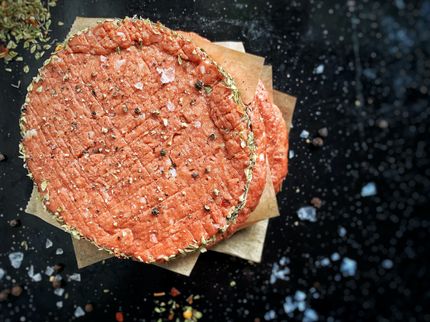Temporary slowdown in meat reduction trend as processed meat sales boom
A resurgence in canned meat saw sales increase an estimated 22% in 2020
Advertisement
The COVID-19 pandemic has proved to be a temporary setback for the flexitarian movement, with the proportion of adults limiting or not eating meat dropping significantly in 2020, according to new research from Mintel. But as the food and drink industry recovers from the pandemic, Mintel expects that momentum will return to the plant-based industry.

Photo by Jeff Siepman on Unsplash
Veganuary may be in full swing, but according to Mintel research, the number of Brits actively limiting/reducing or not eating meat in their diet has reduced from half (51%) of all consumers in 2019 down to four in ten (41%) in 2020. Meanwhile, in search of familiar foods, sales of processed meat products, including processed poultry and red meat main meal components, skyrocketed by 18% during 2020 and are estimated to be worth £3.7 billion.
Breakfast and barbecue favourites, bacon (+18%), sausages (+20%) and burgers (+26%), all benefited from the rise in scratch cooking and shift towards eating at home brought on by the pandemic. Increased rates of homeworking have also been driving a rise in at-home lunches which helped push the sales of cooked sliced meat/poultry, such as ham, which rose 9% in 2020. Having been in decline for a number of years, stockpiling of canned meat led to a resurgence in sales in 2020, increasing 22%. This comes as 58% of meat/poultry eaters say that meals that contain processed meat products are comforting.
While the flexitarian movement has faltered during the pandemic, Mintel research reveals a huge increase in the number of Brits who acknowledge the impact that eating meat has on the environment. In 2018, just a quarter (25%) of Brits agreed that eating less meat is better for the environment, but this shot up to 42% in 2020.
Edward Bergen, Global Food & Drink Analyst, said:
“Prior to the COVID-19 outbreak, the meat reduction trend was gaining considerable momentum. The huge disruption, uncertainty and stress caused by the pandemic have caused a relaxation around some health- and ethics-driven habits among many consumers. It is not surprising that meat reduction has taken a temporary back seat, particularly given the increased desirability of familiar comfort food and that meat is seen to really deliver here. The long, hot summer and an increased need to be outside more gave a boost to sales of sausages and burgers through an increase in opportunities for barbecues.
“But the setback for the flexitarian movement is likely to be very short-lived. As the shadow of the pandemic fades, its impact in the mid- and long-term are only going to make the benefits consumers associate with eating less meat seem even more relevant and important. This includes those relating to sustainability and to people’s finance, health and weight management. With that in mind, we anticipate a flurry of new plant-based products that will continue to drive plant-based usage in a market which is driven by innovation and newness.”
Half of Brits eat meat substitutes
Eaten by as many as half (50%) of all Brits, meat substitutes*** enjoy a widespread appeal beyond just vegetarian/vegan consumers. However, usage is strongly skewed towards the younger generation, peaking at 65% of 16-24s, and is limited among over-65s (26%).
Mintel research reveals that half (48%) of meat substitute users prefer products which are fully plant-based/vegan, over those that contain animal-sourced ingredients such as dairy and eggs, rising to 57% of Millennials. Despite this, veganism remains decidedly niche with just under 2% of the population following this diet.
Edward Bergen, Global Food & Drink Analyst, said:
“While the meat reduction trend continued to gather momentum in 2019, the category’s increasingly mainstream role means that the health halo around meat substitutes, as well as their price, are set to come under greater scrutiny.
“Although lapsing during the COVID-19 pandemic, the meat reduction movement is expected to rebound. However, meat substitutes must really deliver on the perceived benefits of not eating meat to reap the rewards from this trend.”






























































